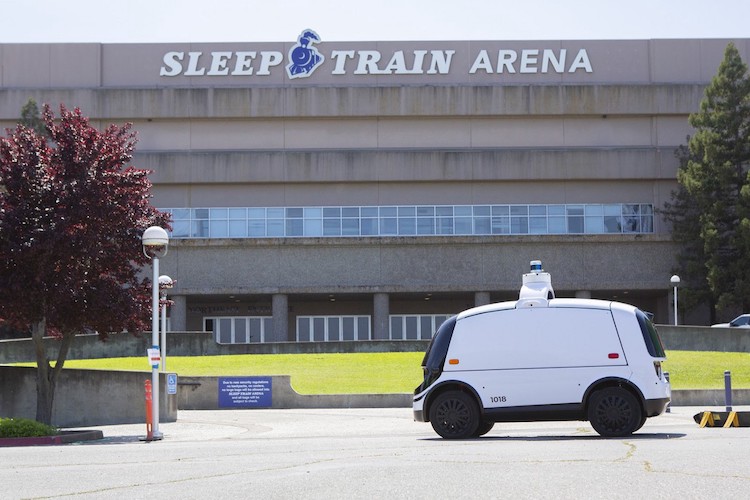
Nuro puts its delivery robot into action against coronavirus
Nuro, a California-based startup building small, wheeled autonomous delivery robots, is using its technology in the fight against the coronavirus outbreak in the US. (See video below.)
America now has the highest death toll in the world from Covid-19 and authorities have set up many temporarily hospitals and treatment centres across the country.
One of these temporary hospitals is located at the Sleep Train Arena, a basketball stadium which used to be the home of the Sacramento Kings, and another at the San Mateo County Event Center.
Nuro has arranged for its robot to make deliveries of food, water, and other supplies to these facilities on an as-needed basis.
In an article published on Medium, Dave Ferguson, co-founder of Nuro, says: “As a company we want to play whatever role we can to help today’s heroes do their jobs safely and focus on doing what only they can do.”

He adds: “We realized that we could potentially use our R2 unmanned vehicles to provide truly contactless delivery of goods, where we remove any possible interaction between a driver dropping off goods and a person picking them up.”
The robots are mostly delivering medical supplies and food, and although the machines were always intended for such purposes, “we never imagined that we would need to collectively respond to a pandemic”, says Ferguson.
Nuro is now rethinking its strategy and considers the fight against coronavirus “an undeniably massive, and likely long-term, challenge”.
As some have already predicted, the Covid-19 pandemic is likely to bring more automation into many aspects of people’s daily lives.
Until now, delivery robots were seen as a novelty which may or not be commercially viable, with some even seeing them as slightly annoying because they take up space on sidewalks.

However, with the enforced lockdowns around the world keeping people inside their homes, new practices such as grocery deliveries by robot are likely to become part of urban landscapes everywhere.
Covid-19 has “caused us to grow and shift our awareness of those we can help”, says Ferguson.
He adds: “We now consider the grocery store worker who carries groceries out to customers’ cars.
“The neighbor who goes to the drug store to pick up essentials for vulnerable residents of the same apartment complex. All of the logistics personnel who move things in and out of hospitals. The warehouse workers who load vehicles with goods to be delivered to our homes.
“In all of these interactions, peoples’ lives can be stricken by illness caused through too many human touch points.”
While he accepts that robotic or “contactless” delivery services are not going to solve the immediate crisis, Ferguson says the opportunity to help in some small way has inspired the company.
